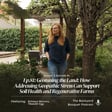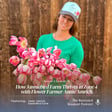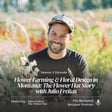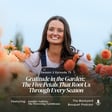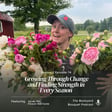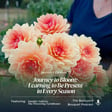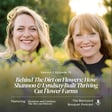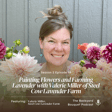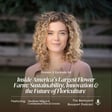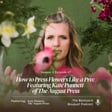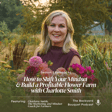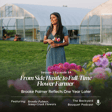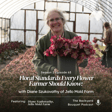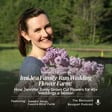
Ep.32: How Harris Flower Farm Built a Successful Business Model for Farmers Markets & C.S.A. Subscriptions
Are you curious about what it takes to successfully sell flowers at the farmer's market? Imagine the vibrant colors, the sweet scents, and the joy of sharing beautiful blooms with others. If you're intrigued, then you'll definitely want to tune in to the latest episode of the Backyard Bouquet Podcast featuring Janis Harris from Harris Flower Farm in Ontario, Canada.
In this episode, Janis shares her journey of transforming her family-operated flower farm into a thriving hub for beautiful cut flowers. With 16 years of experience in the industry, Janis offers valuable insights into running a successful farmer's market where her flowers find their way into the homes and hearts of many.
From growing a variety of flowers on eight acres of land to engaging with customers at the market, Janis's story is both inspiring and informative. She discusses the importance of valuing the quality of flowers over quantity, sharing how attention to detail and dedication to providing top-notch blooms have set her farm apart.
One key takeaway from Janis's experience is the significance of building a loyal customer base through consistency and quality. By offering a range of price points and focusing on the freshness and longevity of her flowers, Janis has cultivated a strong following of flower enthusiasts who appreciate the value of her products.
So, if you're eager to learn more about the behind-the-scenes of a successful flower farm and the strategies for thriving at the farmer's market, be sure to listen to the full conversation with Janis Harris on the Backyard Bouquet Podcast. Get ready to be inspired by her passion for flowers and her dedication to delivering exceptional blooms to her community.
In This Episode You’ll Hear About:
00:02:33 - Transition from Optician to Full-Time Flower Farmer
00:05:18 - Family Farming Legacy and Farm Purchase
00:06:01 - Balancing Full-Time Job and Flower Farming
00:08:25 - Family Involvement in the Farm
00:10:25 - Team and Seasonal Help
00:11:19 - Ontario's Growing Season and Climate
00:17:07 - Types of Flowers and Crops Grown
00:18:22 - Overwintering Flowers in Zone 5B
00:20:05 - Flower Distribution Channels
00:23:13 - Building a Customer Base
00:25:05 - Subscription Model and Pre-Sales
00:27:15 - Greenhouse Production and Seasonal Flowers
00:27:48 - On-Farm Events and Workshops
00:30:08 - Pick-Your-Own Events and Customer Engagement
00:32:49 - Farmer's Market Presence and History
00:35:18 - Market Logistics and Setup
Learn More About Harris Flower Farm:
- https://www.harrisflowerfarm.ca/
- https://www.instagram.com/harrisflowerfarm/
- https://www.facebook.com/harrisflowerfarmpasturedpork
***3 Types Of People Are Replacing Their Income With A Digital Course… Are You One Of Them?***
Take the quiz: https://bit.ly/3typesofpeoplereplacingincomewithadigitalcourse
Shownotes: https://bit.ly/4dqCNAz
Sign up for our newsletter: https://thefloweringfarmhouse.myflodesk.com/nlw4wua8s3
***Rate, Review, & Follow The Backyard Bouquet***
If you enjoyed this episode, will you please consider leaving the podcast a review? Your review helps make the podcast more discoverable to others and allows me to continue creating more episodes. I'd love to know what you enjoyed most about the episode.
New episodes every week to help keep your garden blooming!
